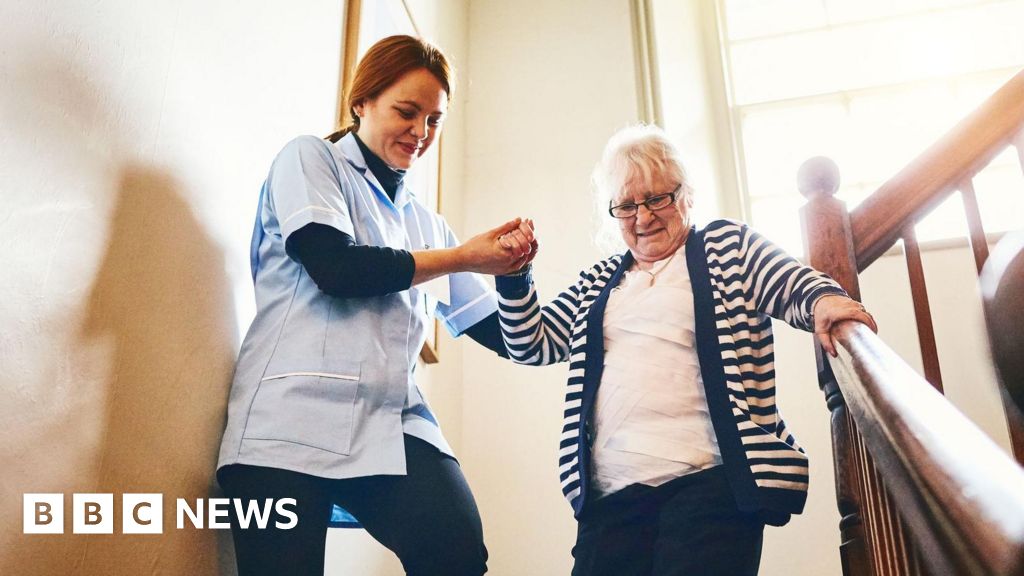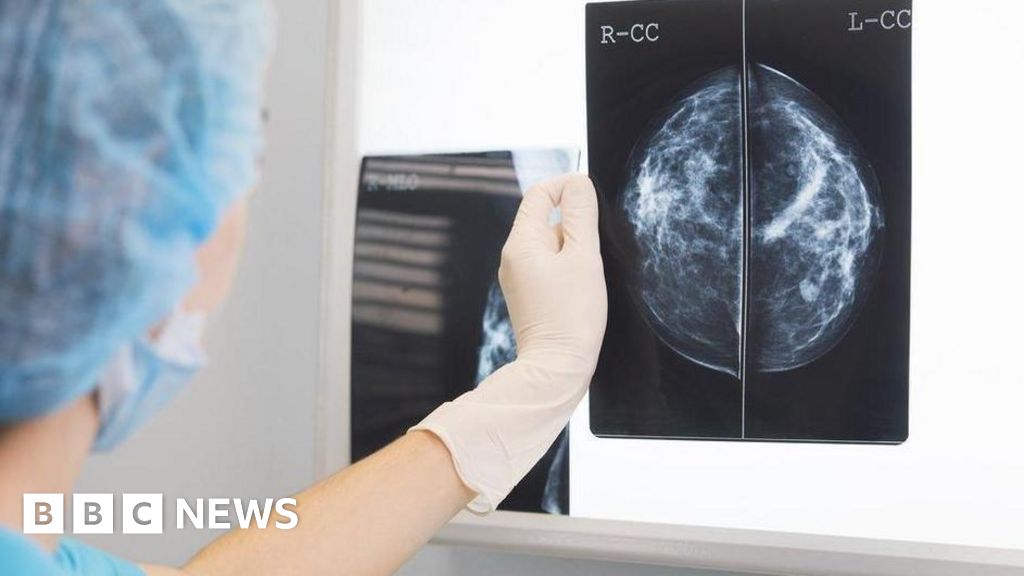ARTICLE AD BOX
By Michelle Roberts
Health editor, BBC News online
Image source, Maurice Ramirez, UCSF 2021
Image caption, Prof Katherine Scangos checking Sarah's device and progressAn electrical implant that sits in the skull and is wired to the brain can detect and treat severe depression, US scientists believe after promising results with a first patient.
Sarah, who is 36, had the device fitted more than a year ago and says it has turned her life around.
The matchbox-sized pack in her head is always "on" but only delivers an impulse when it senses she may need it.
The experimental study is described in Nature Medicine journal.
The researchers, from University of California, San Francisco, stress it is too soon to say if it might help other patients, like Sarah, with hard-to-treat depression, but they are hopeful and plan more trials.
Depression circuits
Sarah is the first person to have had the experimental therapy.
She'd had a succession of failed treatments, including anti-depressants and electroconvulsive therapy in recent years.
The surgery may sound daunting, but Sarah said the prospect of gaining "any kind of relief" was better than the darkness she had been experiencing.
Image source, John Lok, UCSF 2021
Image caption, Sarah says the device has helped her depression"I had exhausted all possible treatment options.
"My daily life had become so restricted. I felt tortured each day. I barely moved or did anything."
The surgery involved drilling small holes in her skull to fit the wires that would monitor and stimulate her brain.
The box, containing the battery and the pulse generator, was tucked into the bone, beneath her scalp and hair.
The procedure took a full working day and was done under general anaesthetic, meaning Sarah was unconscious throughout.
Sarah says when she woke, up she felt euphoric.
"When the implant was first turned on, my life took an immediate upward turn. My life was pleasant again.
"Within a few weeks, the suicidal thoughts disappeared.
"When I was in the depths of depression all I saw is what was ugly."
A year on, Sarah remains well, with no side-effects.
"The device has kept my depression at bay, allowing me to return to my best self and rebuild a life worth living."
She can't feel the device as it fires, but says: "I could probably tell you within 15 minutes that it has gone off because of a sense of alertness and energy or the positivity I will feel."
How it works
Researcher Dr Katherine Scangos, who is a psychiatrist at the university, said the innovation was made possible by locating the "depression circuits" in Sarah's brain.
"We found one location, which is an area called the ventral striatum, where stimulation consistently eliminated her feelings of depression.
"And we also found a brain activity area in the amygdala that could predict when her symptoms were most severe."
The scientists say a lot more research is needed to test the experimental therapy and determine if it can help more people with severe depression, and perhaps other conditions too.
Personalised treatment
Dr Scangos, who has enrolled two other patients in the trial and hopes to recruit nine more, said: "We need to look at how these circuits vary across patients and repeat this work multiple times.
"And we need to see whether an individual's biomarker or brain circuit changes over time as the treatment continues.
"We didn't know if we were going to be able to treat her depression at all because it was so severe.
"So in that sense we are really excited about this. It's so needed in the field right now."
Dr Edward Chang, the neurosurgeon who fitted the device, said: "To be clear, this is not a demonstration of efficacy of this approach.
"It's really just the first demonstration of this working in someone and we have a lot of work ahead of us as a field to validate these results to see if this actually is something that will be enduring as a treatment option."
Prof Jonathan Roiser, a neuroscience expert at University College London in the UK, said: "Although this kind of highly invasive surgical procedure would only ever be used in the most severe patients with intractable symptoms, it is an exciting step forward due to the bespoke nature of the stimulation.
"It is likely that if trialled in other patients, different recording and stimulation sites would be required, as the precise brain circuitry underlying symptoms probably varies between individuals.
"As there was only one patient and no control condition, it remains to be seen whether these promising results hold in clinical trials."
The BBC is not responsible for the content of external sites.

 3 years ago
89
3 years ago
89








 English (US) ·
English (US) ·